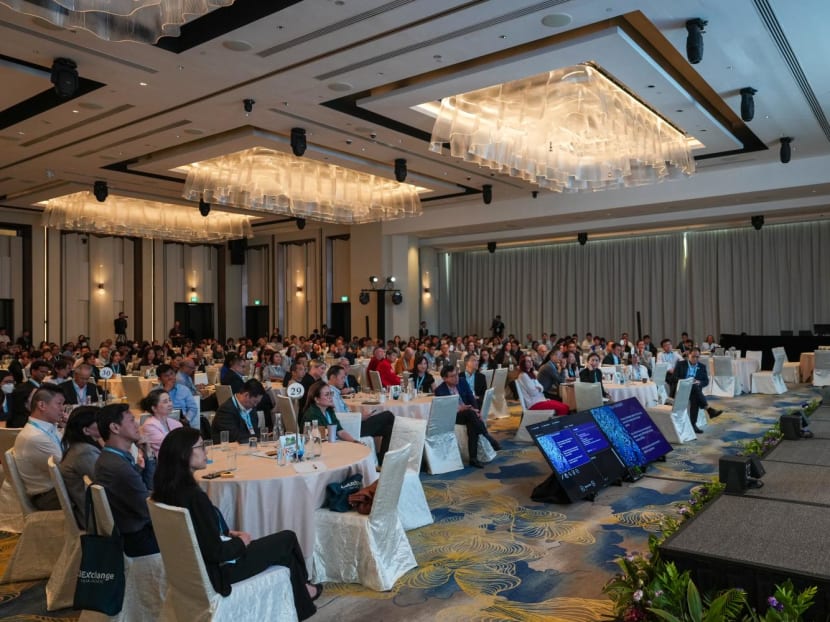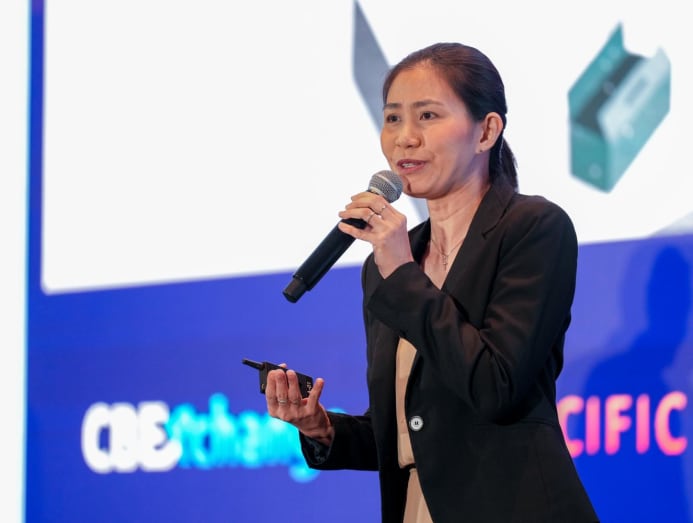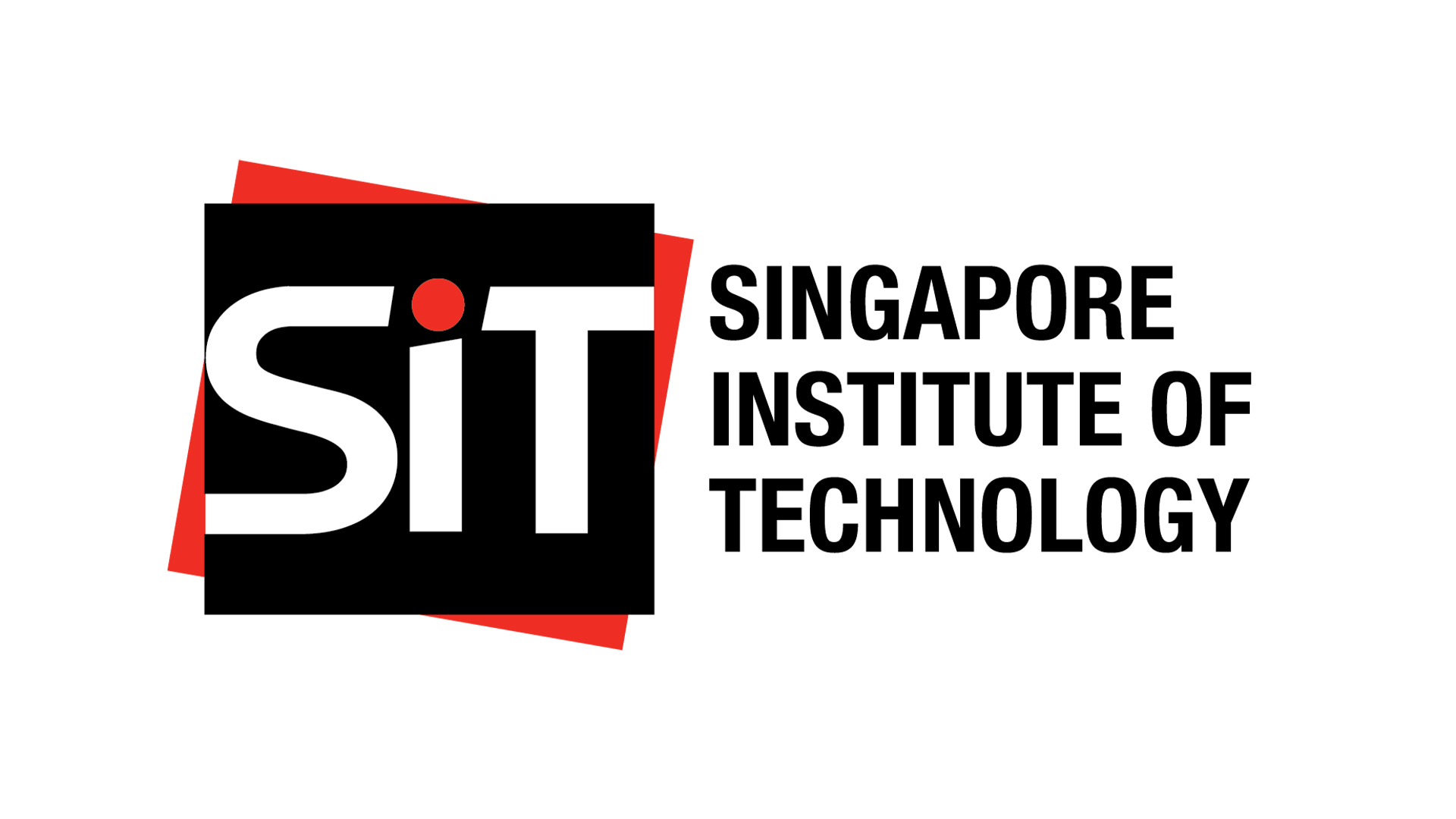The future of learning: Exploring AI’s revolutionary impact on education

Prof George Siemens, an expert on artificial intelligence, shares insights on its impact on learning at the CBExchange APAC Conference 2024. Photos: Singapore Institute of Technology
In the age of artificial intelligence, the Singapore Institute of Technology is harnessing its potential to reshape education through a competency-based approach.
“In the realm of education, artificial intelligence (AI) is not just a tool,” said Professor George Siemens, chief scientist of Southern New Hampshire University’s Human Systems – an organisation that builds resources to respond to the systemic impact of AI on learning and wellness. “It is a thinking partner, one that changes our cognition.”
Recognised for his pioneering work on how technology influences education, Prof Siemens was speaking at the recent CBExchange APAC 2024 in Singapore. Organised by the Singapore Institute of Technology (SIT) in partnership with the Competency-Based Education Network, the conference gathered thought leaders to explore the evolving landscape of education in the digital age.
Indeed, AI is not just transforming industries but also recalibrating the labour market and precipitating a shift in core competencies. This rapid evolution presents a challenge for the education sector in bridging the widening gap between the skills of today’s workforce and those required by the job market.
The solution, according to Prof Siemens, lies in embracing a new educational approach, one increasingly recognised as vital in our AI-driven era: Competency-based education.

A NEW PARADIGM OF LEARNING
In competency-based education, mastering skills and knowledge isn’t just about what you know but how well you apply it. In today’s dynamic job market, characterised by rapid technological advancements, this educational framework proves both agile and responsive.
Addressing a pressing concern in modern education, Prof Siemens underscored the challenge universities face in assessing the authenticity of student performance. “With AI’s ability to generate assignments, how do we accurately assess student capabilities?” he said.
Competency-based education offers a compelling solution by shifting the focus to practical skill application rather than mere acquisition. Within this framework, proficiency in utilising AI itself becomes a competency that students will have to master in order to achieve their learning goals effectively.
Moreover, this educational approach is designed to align educational outcomes with the evolving demands of the job market. By leveraging AI’s capabilities, curriculum development can be tailored to match real-world workforce requirements. This backward-design methodology ensures that educational pathways directly address the skills gap, enhancing graduates’ employability.
During her presentation at CBExchange APAC 2024, Associate Professor May Lim, assistant provost (Applied Learning) at SIT, shared how competency-based education and stackable micro-credentials revolutionise learning. “With the help of AI and big data, we can quickly gather industry insights, enabling educational institutions to refine their offerings to equip students with the relevant skills to meet tomorrow’s challenges,” she said.
EMPOWERING ADULT LEARNERS THROUGH AI
SIT spearheaded the competency-based education model last year with the launch of its Applied Computing degree programme. Alongside, it introduced stackable micro-credentials and recognition of prior learning as key components of its adult education offerings.
Assoc Prof Lim said: “As a forward-looking university, it’s crucial that we embrace change and offer flexible and accessible education pathways. This is vital for adult learners juggling multiple commitments while pursuing further education.”

The integration of AI’s adaptive learning technologies provides opportunities for highly personalised education, allowing content delivery that can be adapted to each learner’s pace and preferences. It also broadens the spectrum of assessment methods while ensuring comprehensive feedback. Assoc Prof Lim explained: “AI tutors can transform the feedback process by offering multifaceted perspectives, unlike the traditional method that relies on a single source.”
A unique challenge encountered by students pursuing stackable micro-credentials is the asynchronous nature of the lessons, which allows for self-paced learning. “While independent learning offers flexibility, we recognise the value of collaborative learning. This is where AI peers can come into play alongside human peers with different schedules. This can make the learning process more interactive and supportive while accommodating the hectic schedules of adult learners,” she elaborated.
NAVIGATING ETHICAL FRONTIERS WITH INTEGRITY
As educators explore the vast potential of AI, ethical considerations remain paramount. Stressing the necessity for openness and clarity in AI-related processes, Assoc Prof Lim said: “Ensuring transparency in how data is utilised is fundamental for building trust between students and educational institutions.”
Expanding on this ethical imperative, Prof Siemens added: “Every phase – from data collection and model building to deployment and assessment – demands meticulous attention to safety, equity and ethics. It is critical that technological advancements contribute to a learning environment that is both fair and secure.”
Looking ahead, Prof Siemens envisions AI as a catalyst for deeper inquiry into the human condition. “We’re at a crossroads, questioning what it means to be human in a technology-driven world,” he mused. “The hope is that AI will guide us in asking the right questions about human identity – and in so doing, elevate our understanding and enrich the human experience.”
Learners who are keen to upskill themselves can discover the array of courses offered by the Singapore Institute of Technology.









